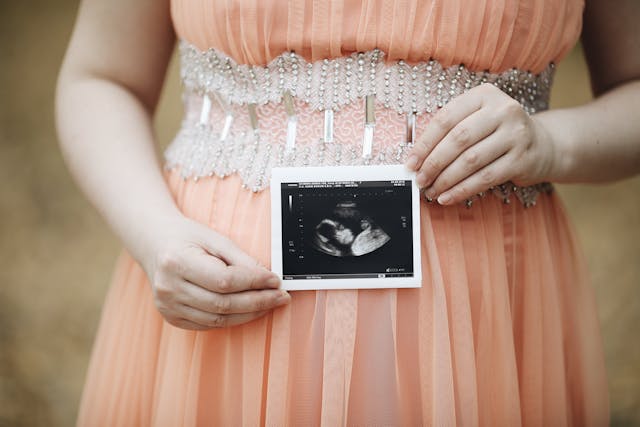Eight Common Causes of Miscarriage During Pregnancy
As a mother, the pain of a miscarriage during pregnancy is an experience that cuts deeply it’s heartbreaking, confusing, and often leaves you searching for answers. You might find yourself wondering, Why did this happen? While it’s a devastating loss, understanding the possible causes can offer some clarity and a path toward healing.
Miscarriages can happen for many reasons, including chromosomal abnormalities, health conditions affecting the mother, issues with the uterus or cervix, maternal age, lifestyle factors, complications with the placenta, or other medical conditions. For mothers expecting multiples, complications in multiple pregnancies may also play a role.
In this article, we’ll explore these causes in detail, providing insights to help you better understand what might lead to a miscarriage. Remember, you’re not alone, and gaining knowledge can be a small step toward emotional recovery.

1. Chromosomal Abnormalities
The most common cause of miscarriage in the first trimester is chromosomal abnormalities, which result from problems in the number or structure of chromosomes that carry genetic material. During early pregnancy, as embryo cells multiply and grow, random errors can occur in this complex process. A typical embryo should have 23 pairs of chromosomes (46 total) but sometimes ends up with extra or missing chromosomes or structural problems like missing or rearranged parts. These issues prevent proper embryo development and account for 50-70% of first-trimester miscarriages, typically ending the pregnancy before the second trimester. Importantly, these abnormalities usually occur randomly, regardless of parental age or health, and don’t reflect parental health problems. Most cases happen by chance and are unlikely to recur in future pregnancies.
2. Maternal Health Conditions
Various maternal health conditions can significantly increase the risk of miscarriage by affecting embryo development or overall pregnancy health. Poorly managed diabetes can harm the embryo during early pregnancy due to high blood sugar levels. Both overactive and underactive thyroid conditions can interfere with normal embryo development and increase miscarriage risk. Untreated high blood pressure can lead to complications like preeclampsia, affecting the placenta and raising miscarriage risk. Autoimmune disorders, particularly antiphospholipid syndrome (APS), can cause blood clots and inflammation that interfere with pregnancy. Additionally, certain infections during early pregnancy pose risks, including listeria (from unpasteurized dairy products and deli meats) and toxoplasmosis (from raw meat, unwashed produce, or cat faeces).
3. Uterine or Cervical Issues
Problems with the uterus and cervix can lead to miscarriage by interfering with embryo implantation or causing complications during pregnancy. While fibroids (benign growths in the uterine wall) and polyps (small growths on the uterine lining) are usually harmless, large ones or those in certain locations can interfere with pregnancy. Cervical insufficiency occurs when a weak cervix opens prematurely during pregnancy, often due to previous surgical damage or natural tissue weakness. Structural abnormalities like uterine septum (a wall dividing the uterus), abnormally shaped uterus, or uterus didelphys (two uteri) can impair embryo development. Additionally, scarring from previous surgeries (Asherman’s syndrome) can prevent proper embryo implantation or cause placental attachment problems.
4. Advanced Maternal Age
The risk of miscarriage increases significantly with maternal age, particularly after age 35. Women who become pregnant after 35 face progressively higher risks – reaching about 40% by age 40 and 80% by age 45, though many still have healthy pregnancies. This increased risk is primarily due to chromosomal abnormalities becoming more common in ageing eggs, which have been stored in the ovaries since before birth and exposed to environmental factors over time. Additionally, egg quality declines with age, leading to potential genetic and structural problems, and reduced mitochondrial function in older eggs can impair the energy production needed for proper embryo development.
5. Lifestyle Factors

Certain lifestyle factors can raise the risk of miscarriage by harming the developing embryo or interfering with a healthy pregnancy.
Smoking during pregnancy increases miscarriage risk. Chemicals in cigarette smoke can cross the placenta, harm the embryo, and cause placental problems. Heavy alcohol use during pregnancy raises the risk of miscarriage and serious complications like fetal alcohol syndrome. It’s best to avoid alcohol entirely. Illegal drugs like cocaine, heroin, and meth greatly increase miscarriage risk and can cause birth defects, growth problems, and placental issues. Exposure to high levels of certain toxins, like lead, mercury, and some pesticides, has been linked to pregnancy loss. Rarely, extreme physical trauma in the first trimester can cause miscarriage by injuring the embryo or causing the placenta to separate from the uterus prematurely.
While miscarriage cannot be completely prevented through intervention, pregnant women can increase comfort and potentially reduce some risks through daily lifestyle choices. During mid to late pregnancy, using belly bands, maternity pillows, and proper maternity clothes can help increase comfort.
6. Placental Problems
The placenta is an important organ that supports the growing baby during pregnancy. Problems with the placenta can lead to serious complications, including miscarriage.
Placental abruption is when the placenta separates from the uterus before the baby is born, causing heavy bleeding and cutting off oxygen and nutrients to the baby. It’s a medical emergency that can lead to miscarriage or premature birth.
If the placenta doesn’t develop enough, it might not be able to support the growing baby. This can cause slow growth, low amniotic fluid, and a higher risk of miscarriage.
Some blood clotting disorders can cause problems with how the placenta works by blocking the small blood vessels, disrupting the flow of nutrients to the baby and possibly causing miscarriage.
7. Underlying Medical Conditions
Underlying medical conditions, especially if severe or poorly managed, can raise the risk of miscarriage by affecting the pregnancy’s development or the mother’s overall health.
Chronic diseases like diabetes, high blood pressure, and autoimmune disorders can increase the risk of miscarriage if not well-controlled. Even if usually managed well, a sudden worsening of symptoms can raise the risk.
Some medications used to treat chronic diseases may not be safe during pregnancy and have been linked to miscarriage or birth defects. If you’re taking medications and planning a pregnancy, talk to your doctor about potential risks and alternatives.
However, having an underlying condition doesn’t mean you can’t have a healthy pregnancy. Working closely with your healthcare team to manage your condition and following a thorough prenatal care plan can help you have a successful pregnancy and a healthy baby.
8. Multiple Pregnancy Complications
Twin and multiple pregnancies have a higher risk of complications that can lead to miscarriage.
Twin-to-Twin Transfusion Syndrome (TTTS) occurs when identical twins share a placenta and blood flows unevenly between them, potentially causing miscarriage.
Vanishing Twin Syndrome happens when one twin is miscarried in the first trimester while the other continues to develop. The surviving twin is often healthy but still has a higher risk of complications.
Multiple pregnancies have higher risks of preterm labour, gestational diabetes, high blood pressure, placental problems, and growth restriction compared to singleton pregnancies.
Close monitoring and frequent prenatal checkups are important for managing risks in multiple pregnancies. Despite the risks, many women with twins or triplets have healthy pregnancies and babies.
Don’t Hesitate to Reach Out for Medical Support!
Miscarriage is a complex and emotionally challenging experience that many women face. By understanding the various factors that can contribute to pregnancy loss, from chromosomal abnormalities and maternal health conditions to lifestyle choices and age-related risks, you can better navigate this difficult journey. Most causes of miscarriage are beyond your control, and having one miscarriage does not necessarily mean you will have another. If you have experienced a miscarriage or are concerned about your pregnancy, don’t hesitate to reach out to your healthcare provider for support, guidance, and resources to help you through this trying time.









